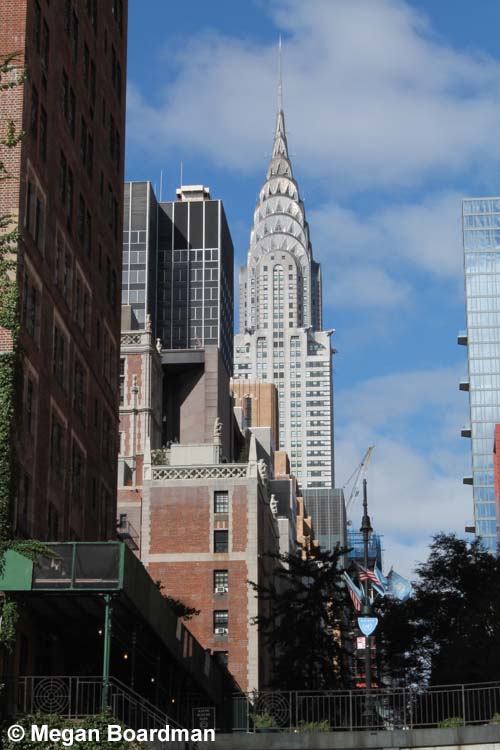|
The Chrysler Building
sits at the intersection of 42nd Street and
Lexington Avenue in New York’s Manhattan
district. Recognized today as an icon
of Art Deco architecture it was, when
completed in 1930, the world’s tallest
building, a title it held until the
completion of the Empire State Building in
1931. It features a steel frame
in-filled with masonry and decorated with
metal cladding.
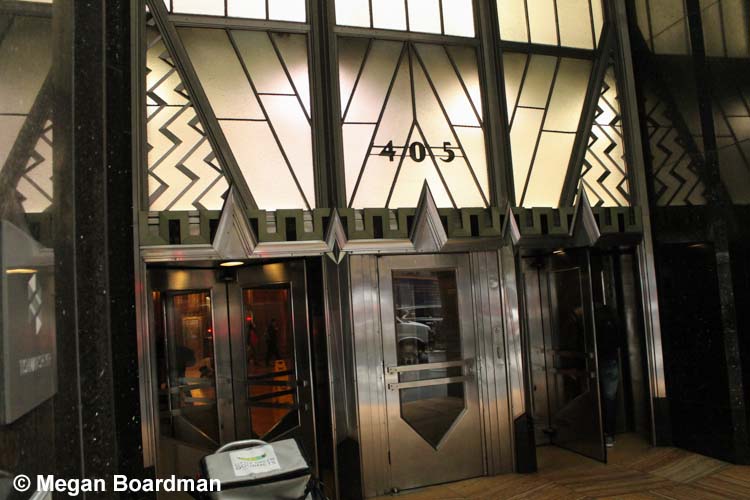
The building’s Wikipedia
page explains that, “…. The structure
contains 3,862 exterior windows.
Approximately fifty metal ornaments
protrude at the building's corners on
five floors reminiscent of gargoyles on
Gothic cathedrals. The
31st-floor contains gargoyles and
replicas of the 1929 Chrysler radiator
caps, the 61st-floor eagles, a nod to
America's national bird."
The design of the building incorporated
bright "Nirosta" stainless steel, an alloy
developed in Germany by Krupp. It
was the first use of this stainless steel
in an American project.
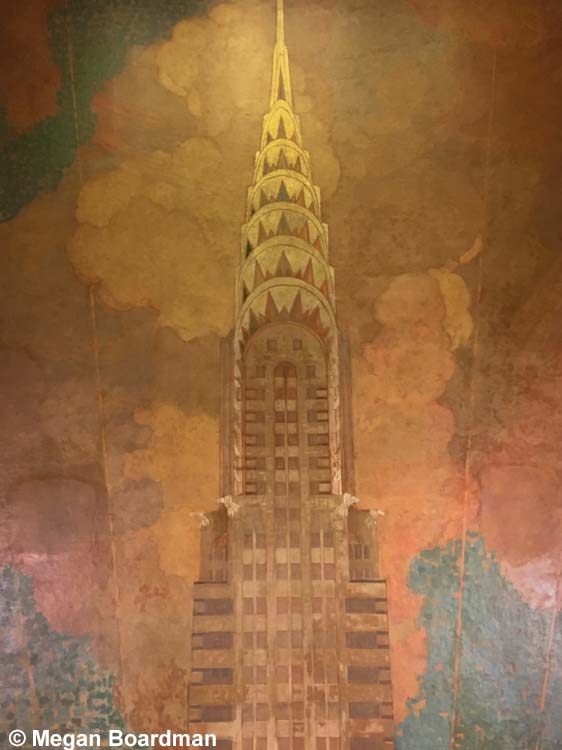
The building's
Wikipedia page explains that it was, ".....
constructed by Walter Chrysler, the
head of the Chrysler Corporation, and
served as the corporation's
headquarters from 1930 until the
mid-1950s. The Chrysler Building's
construction was characterized by a
competition with 40 Wall Street and
the Empire State Building to become
the world's tallest building. Although
the Chrysler Building was built and
designed specifically for the car
manufacturer, the corporation did not
pay for its construction and never
owned it; rather, Walter Chrysler
decided to pay for it himself so that
his children could inherit it."
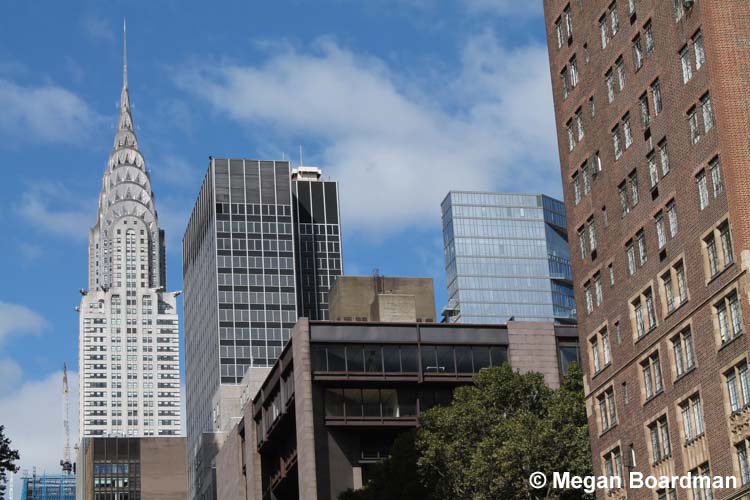
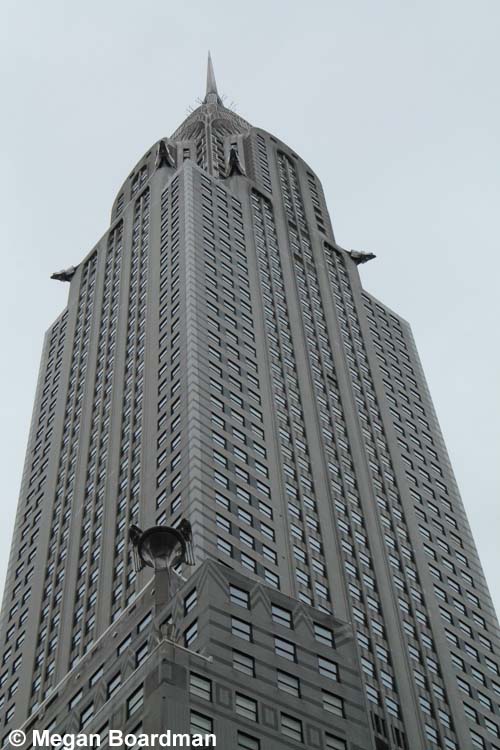
************************************
- Inside -
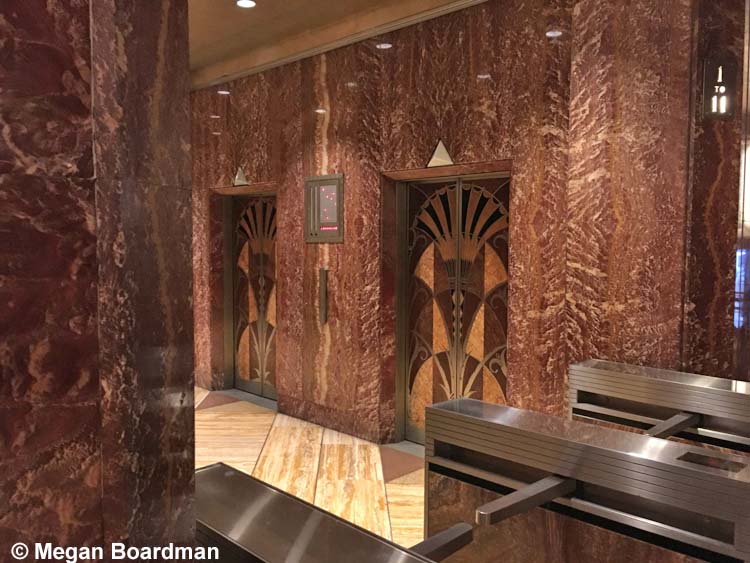
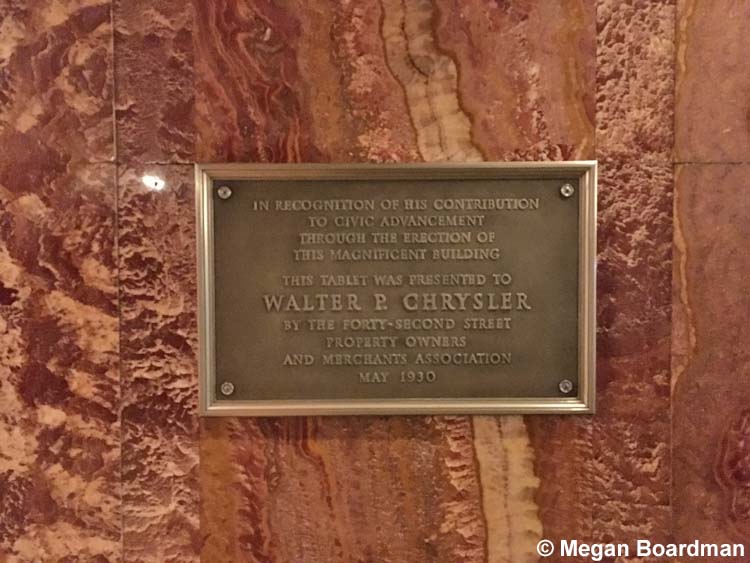
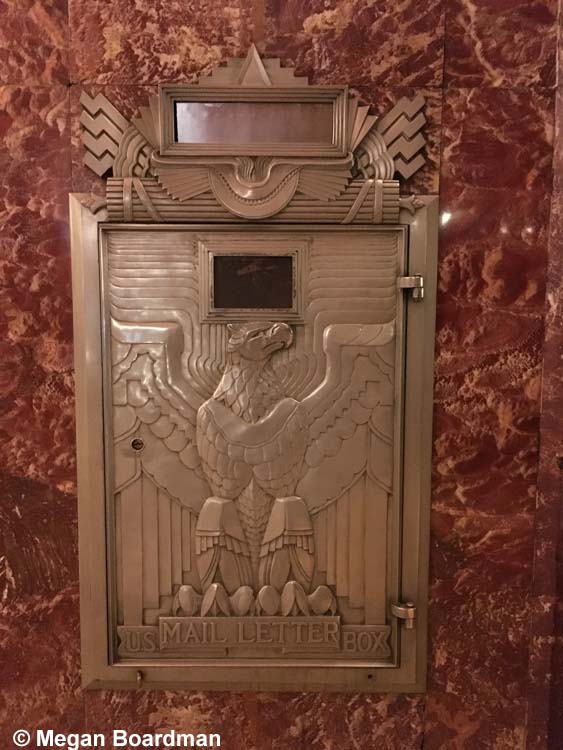
The ceiling in the
building's lobby features a mural by
Edward Turnbull. The theme of the
art work is "Energy and Man's application
of it to the Solution of his
Problems". It pays homage to the
Golden Age of Aviation and the Machine
Age. Writing in the New York Times
in 1999, David W. Dunlap said of the mural
that, ".... Tutankhamen it may not
be, but Trumbull's work is a robust,
unabashed celebration of technological
progress, befitting the theme: 'Energy
and man's application of it to the
solution of his problems.'
Following the inverted Y shape of the
lobby, the mural's root image is a
brawny male figure symbolizing the
'muscled giant whose brain directs his
boundless energy to the attainment of
the triumphs of this mechanical era,'
in the words of a 1930 building
brochure.
Radiating from the core are fire,
water and lightning; electricity, heat
and steam; the telegraph, telephone
and radio; ocean liners, trains and
airplanes (an aluminum-leaf Ford
Tri-Motor with a wingspan of almost
seven feet soars over a map from
'Persia' to 'Siam'). Construction
workers are seen building the Chrysler
Building, which is the apotheosis of
the mural."
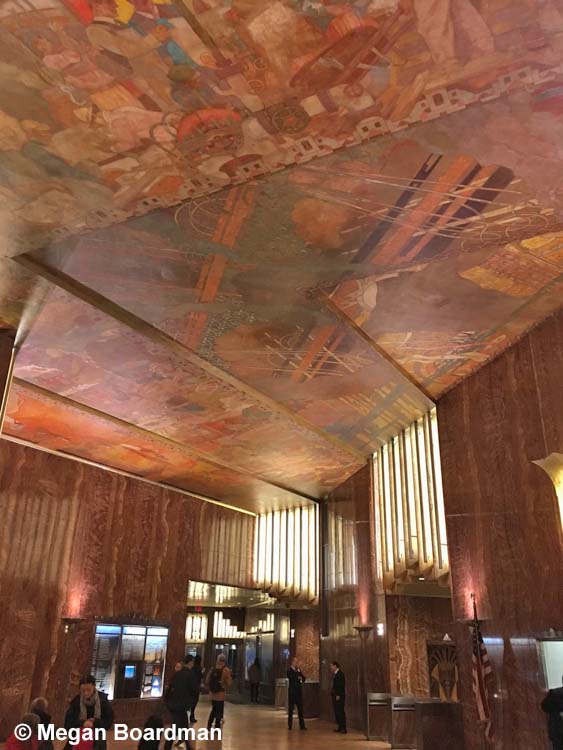
The Y-shaped uses somewhat muted ocher and
golden tones.
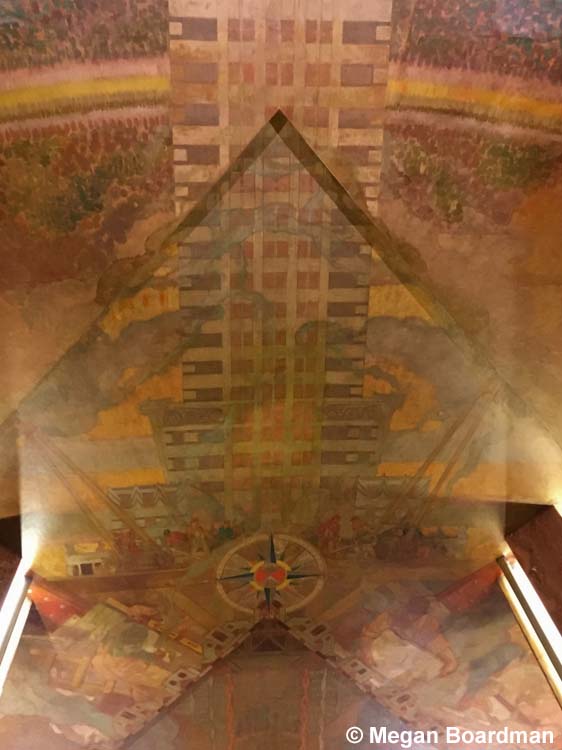
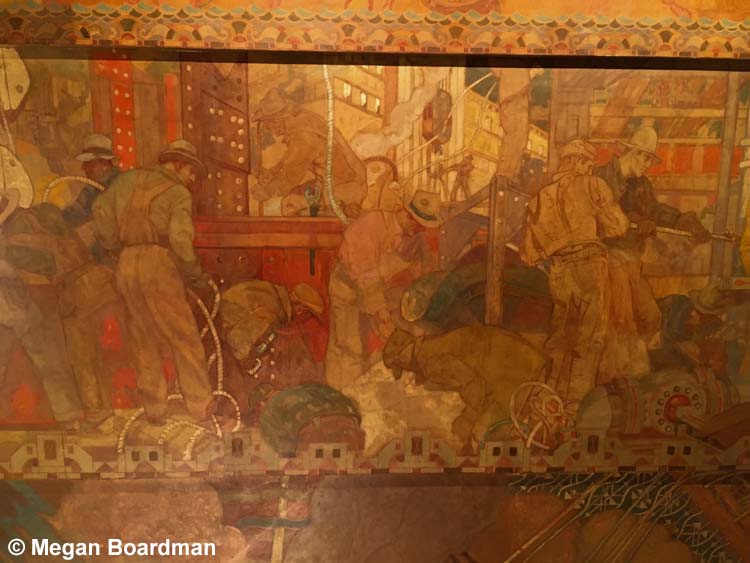
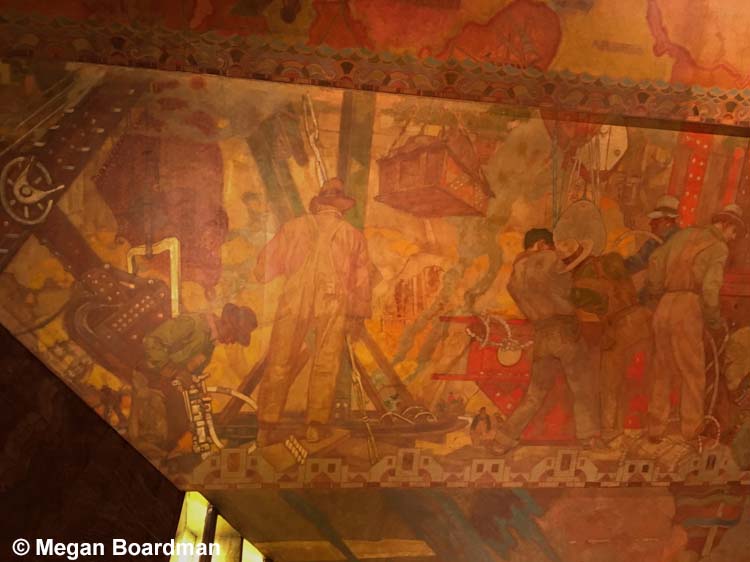
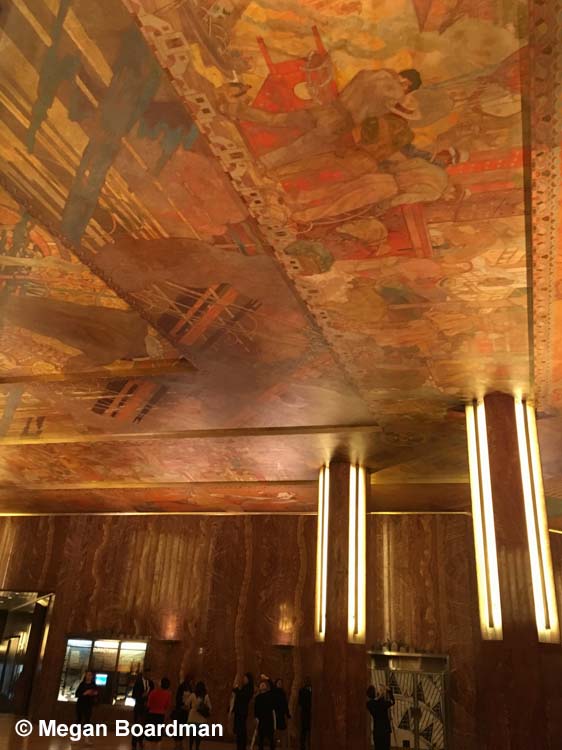
*******************************
The Chrysler Building at night.
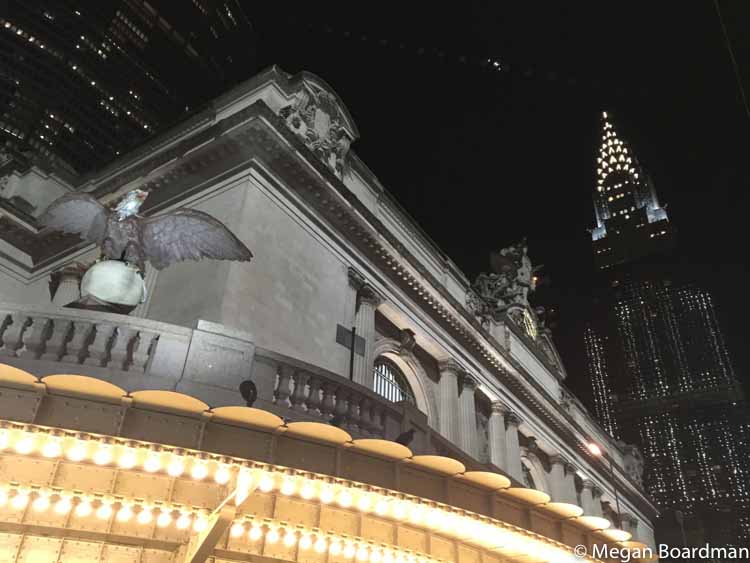
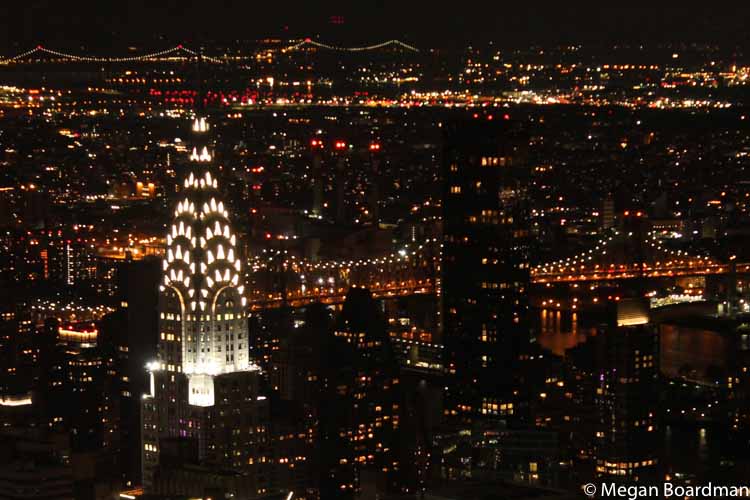
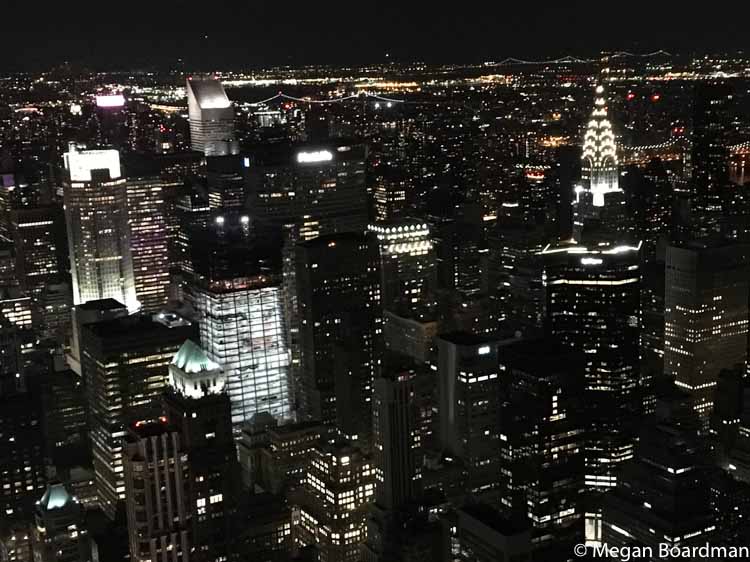
|
